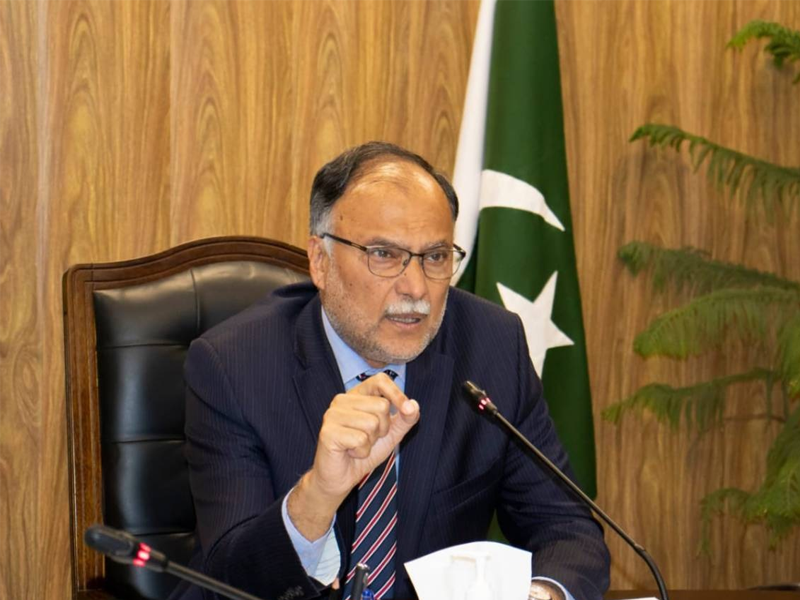Ahsan Iqbal proposes GSP-Plus and 5Es framework for export-led growth

- 89
- 0
ISLAMABAD: Minister for Planning, Development and Special Initiatives, Professor Ahsan Iqbal, proposed a comprehensive strategy to align the European Union’s Generalized Scheme of Preferences (GSP-Plus) program with Pakistan’s 5Es framework to drive export-led economic growth and secure a prosperous future for the country.
His remarks were made during a speech as the guest of honor at a conference titled “Promoting Good Governance through Trade - Leveraging through GSP+,” organized by the Fredrick Naumann Foundation. Ahsan Iqbal emphasized that the GSP-Plus program is not just a trade benefit, but a roadmap for sustainable development and improved governance. By strategically integrating it with the 5Es framework-Exports, E-Pakistan, Environment and Climate Change, Energy and Infrastructure, and Equity and Empowerment-he believes Pakistan can unlock its true potential for growth. “The GSP-Plus program represents more than just trade preferences. It is a framework for sustainable development that, if aligned with the 5Es, will enable us to empower our citizens and build a prosperous future for Pakistan,” Iqbal said. The minister urged the country to take full advantage of the opportunities provided by the GSP-Plus arrangement, which offers Pakistan duty-free or reduced tariffs on exports to the European Union.
He called for an emphasis on strengthening governance and resilience, positioning Pakistan as a globally competitive economy. “We must ensure that trade does not only drive economic prosperity but also acts as a catalyst for equity, transparency, and sustainability,” he added. Iqbal acknowledged the successes achieved under the GSP-Plus program, but pointed out that several challenges remain. These include weak law enforcement, a lack of diversification in exports, and environmental vulnerabilities. He stressed the need for immediate attention to these issues in order to maximize the benefits of the GSP-Plus arrangement and integrate it effectively with the 5Es framework. Elaborating on his proposed strategy, the minister outlined specific measures to promote export-led growth. He proposed the establishment of export diversification centers, which would focus on developing high-value products and green technologies. These centers would provide incentives to exporters and help Pakistan expand its product offerings beyond traditional goods like textiles and apparel. Iqbal also suggested setting up a National Compliance Task Force to oversee the implementation of the GSP-Plus program.
The task force would be responsible for monitoring compliance with international conventions and addressing governance gaps on a permanent or quarterly basis. He expressed hope that the task force would be set up soon, creating a permanent institutional mechanism for GSP-Plus compliance and ensuring sustainable progress. In his speech, Iqbal highlighted the importance of strengthening public-private partnerships (PPPs) to modernize industries, enhance skills, and foster innovation. He proposed that the government invest in export-oriented energy projects to ensure affordable and reliable energy for exporters. The minister emphasized that Pakistan needs to leverage digitization to enhance transparency in trade practices, reduce inefficiencies, and streamline compliance processes.

















































